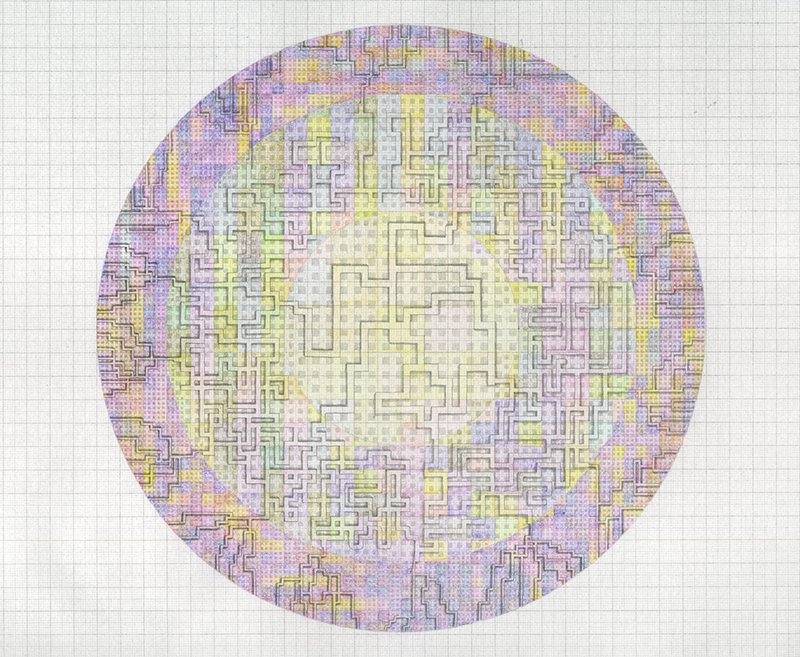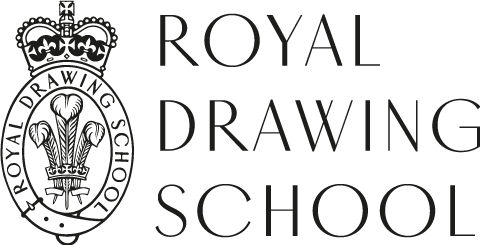Botanical Minds: Gina Buenfeld-Murley and Gemma Anderson in conversation with Claudia Tobin
This Spring Term, the Royal Drawing School continues its series of Creative Conversations; online dialogues between artists, curators and writers. Curated by Dr Claudia Tobin, lectures are held Wednesday evenings live on Zoom.
As an independent charity we rely on donations to keep our programmes accessible and open to everyone. If you would like to support our free online Lecture Series you can make a donation here.
Exploring the exhibition 'The Botanical Mind: Art, Mysticism and the Cosmic Tree' at Camden Art Centre, curator Gina Buenfeld and artist and researcher Gemma Anderson discuss the relationship between botanical life, visual art and the imagination with Claudia Tobin. Drawing on indigenous traditions from the Amazon rainforest; alternative perspectives on Western scientific rationalism; and new thinking around plant intelligence, philosophy and cultural theory, the exhibition and its online counterpart investigates the significance of the plant kingdom to human life, consciousness and spirituality across cultures and through time. As the Royal Drawing School develops its sustainable and green drawing programmes, this is an opportunity to discuss different ways of thinking about and understanding plant life through drawing.

Dr Gemma Anderson, 'Protein Maze no.1', 2018. Pencil and colour pencil on paper, 30x40cm. © Dr Gemma Anderson
Gina Buenfeld-Murley is Exhibitions Curator at Camden Art Centre, London where she has curated The Botanical Mind: Art, Mysticism and The Cosmic Tree (2020); A Tale of Mother’s Bones: Grace Pailthorpe, Reuben Mednikoff and the Birth of Psychorealism (2019); Wong Ping, Heart Digger (2019); Joachim Koester, In the Face of Overwhelming Forces (2017); João Maria Gusmão & Pedro Paiva, Papagaio (2015); Bonnie Camplin (2016) and Rose English (2016). She has organised exhibitions with the estates of Eva Hesse, Hanne Darboven, Pino Pascali and Dieter Roth. Recent independent curatorial projects include Gäa: Holistic Science and Wisdom Tradition, Newlyn Art Gallery and The Exchange, Cornwall, and Origin Story, The Wäinö Aaltonen Museum of Art, Turku, Finland (both 2019). In 2017 she participated in the HIAP Curatorial Programme in Helsinki and since has been researching the place of plants within indigenous cultures in Europe and South America, including field research in Finnish Lapland (Samí shamanism) and extended periods in the Colombian, Peruvian and Brazilian areas of the Amazon Rainforest. She has spent time with the Shipibo, Kukama, Yawanawa and Ticuna peoples, learning about their indigenous poetics and the function of abstract art and music in facilitating communication between the animal and plant kingdoms. Between 2014-18 she established Tokyo Correspondence, a series of exhibitions, residencies and research visits in partnership with Arts Initiative Tokyo (AIT) that facilitated cultural dialogue between artists in the UK and Japan culminating in a residency and exhibition at CAC with acclaimed Japanese artist Yuko Mohri. In 2015 she curated At the Still Point of the Turning World at Shibaura House Tokyo, featuring work by Manon de Boer; Joachim Koester; Simon Martin; Ursula Mayer; Jeremy Millar; Sriwhana Spong; Jesse Wine; and Caroline Achaintre. She was previously Director at Alison Jacques Gallery, London.

Dr Gemma Anderson, Isomorphology, Radial Form, 2014. Copper Etching, 31x25cm. © Dr Gemma Anderson
Dr Gemma Anderson is an artist and researcher, currently co-investigator on the art/science/philosophy AHRC funded project ‘Representing Biology as Process’ (2017-2021) at the University of Exeter.
She has collaborated on a number of innovative art/science projects including ‘Hidden Geometries’ with the Mathematics Department at Imperial College London; ‘Isomorphology’ and the ‘Cornwall Morphology and Drawing Centre’ at CAST with the Natural History Museum, London; and ‘Portraits: Patients and Psychiatrists’ (Wellcome Trust Arts Award 2009) in collaboration with psychiatrists and patients at Bethlem Royal Hospital. Her work has been exhibited at the Victoria and Albert Museum, the Freud Museum and the Wellcome Collection, London. Most recently, her work is part of the exhibition ‘Critical Zones; Observatories for Earthly Politics’ at the Centre for Art and Media (ZKM), Karlsruhe, Germany and ‘The Botanical Mind: Art, Mysticism and the Cosmic Tree’ Exhibition at Camden Arts Centre, London.
Recent publications include her book Drawing as a Way of Knowing in Art and Science (Intellect Press), 2017 and peer reviewed articles ‘Drawing and the dynamic nature of living systems’, Elife Journal, ‘Dynamic Form’, Antennae Journal of Nature in Visual Culture, ‘On Drawing and Mathematics: From Inverse Vision to the Liberation of Form’ and ‘Endangered: A study of the Declining Practice of Morphological Drawing in Zoological Taxonomy’, Leonardo Journal, MIT Press and ‘Drawing Resemblance and Isomorphology’, Architectural Theory Review, Taylor and Francis. Alongside academic publications, Anderson has produced a limited edition Artist’s Book series including ‘Portraits: Patients and Psychiatrists’ Wellcome Trust, London, and ‘Isomorphology’ with Super-Collider, London and Atlantic Press, Cornwall.
Dr Claudia Tobin is a writer and curator. She held a Leverhulme Fellowship at University of Cambridge 2017-19 and is now a Senior Research Associate at Jesus College Cambridge and Visiting Fellow at UCL Institute of Advanced Studies. She recently co-curated Jerusalem in Exile: Artist’s Books by Kamal Boullata and published Modernism and Still Life: Artists, Writers, Dancers (2020), and is co-editor of Ways of Drawing: Artists' Perspectives and Practices (Thames & Hudson, 2019).
